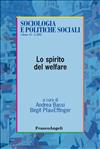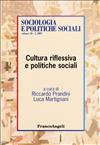
The "housewife model of the male breadwinner marriage" is a specific cultural family model based on two main ideas: a separation of the "public" and "private" spheres, which in turn implies a corollary location for both genders, and the notion of protected childhood within the privacy of the household. It is considered to be the cultural basis of conservative family policies, but its influence differed across West European countries in the 1950s and 1960s. In the present chapter the Author discusses how these crossnational differences can be explained, paying particular attention on the specific relevance played by religious values. In this regard, it is a common assumption that the housewife model is embedded in Catholic religious values, whereas the Protestant religion supports more modern family models. In this essay, by contrast, it is argued that there was no direct link between the dominance of Catholic or Protestant religion and the cultural basis of the family policies in a given country. The Author shows that the origins and development of the housewife model were not connected with Catholic values and that its main supporter, in fact, was the urban bourgeoisie. This cultural model of family laid the ground for the overall gender culture, and gave a common trait to the different religious pillars of the Catholic, Calvinistic, and Lutheran religions. We surmise that factors other than differences in the dominant religion/s per se played a pivotal role, including the social role of the urban bourgeoisie, socio-economic structures, and the density of settlement.

